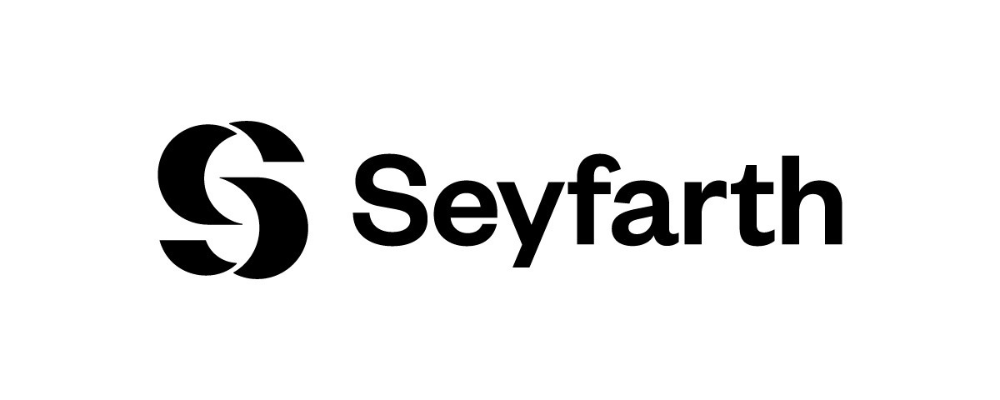What You Need to Know:
- On September 25, 2025, the New York City Council approved a bill that expands the scope of New York City’s Earned Safe and Sick Time Act (“ESSTA”). The bill was officially enacted on October 25, 2025 and will go into effect 120 days later, i.e., on February 22, 2026.
- The impending amendments make a variety of substantive changes to ESSTA, including: expanding reasons for use; adding unpaid leave entitlement; formally codifying Paid Prenatal Leave (which was incorporated into the ESSTA Rules in July 2025, but not the actual Ordinance); and modifications of collective bargaining provisions. In addition, the amendments will bring changes to the separate New York City Temporary Schedule Change Law.
ESSTA History
ESSTA was enacted over a decade ago to provide covered employees with paid safe and sick time (in fact, as noted below, in its infancy, it only covered sick time absences, not safe time). Employees can use ESSTA for themselves or a family member if they have an illness, injury or health condition, need to get a medical diagnosis, care or treatment, or need to get preventive medical care. ESSTA can also be used if the employer’s business closes due to a public health emergency or they need to care for a child whose school or child care provider is closed due to a public health emergency. Employees additionally can use available time off for certain absences related to their or a covered family member’s status as a victim of domestic violence, sexual offenses, stalking, or human trafficking. Employers must provide up to 40 or 56 hours of paid safe and sick time per year, depending on the employer’s size. Employers with less than four employees and a net income of less than $1 million in the prior tax year are allowed to provide unpaid leave.
ESSTA, and its corresponding Rules and FAQs, have been amended many times over the years to expand protection. For instance, in 2018, ESSTA was amended to create “safe time” covered absences. Then in 2020, ESSTA was amended to better align with New York State’s paid sick time requirements. ESSTA was expanded again in 2021 to provide paid time off for employees taking their children to get the COVID-19 vaccine. In 2023, significant amendments were made to ESSTA’s Rules, which included changes to employer size determinations, employee eligibility, notice requirements, documentation standards, payment of sick/safe time, and written ESSTA policies. In 2024, ESSTA was amended to include a private right of action.
More recently, the ESSTA Rules were amended to incorporate paid prenatal leave requirements, some of which expand well beyond the New York State paid prenatal leave standards. Effective July 2, 2025, these amendments touched upon numerous substantive topics, including the amount of prenatal leave, written policy requirements, balance notifications, documentations, employee notice, increments of use, coordination with other leaves, recordkeeping, and potential penalties.
Temporary Schedule Change Law History
In 2018, New York City enacted a bill allowing employees two temporary schedule changes per year for covered personal events. Under this mandate, known as the Temporary Schedule Change Law (“TSCL”),[1] qualified personal events include: the need to provide care for a minor child or other individual under the employee’s care; the need to attend legal proceedings for subsistence benefits to which the employee, the employee’s family member, or the employee’s care recipient is a party; or any circumstance that would qualify for use of safe time or sick time under ESSTA. Examples of temporary schedule changes include, but are not necessarily limited to, using paid time off, working remotely, changing work hours, swapping shifts, or using short-term unpaid leave.
Amendments to ESSTA and TSCL
As noted above, on October 25, 2025, the bill amending ESSTA and the TSCL was formally enacted. It goes into effect on February 22, 2026 (120 days following enactment). Once the amendments take effect, ESSTA will broaden the scope of covered reasons for leave, including to better align with the TSCL. Highlights of the amendments include:
- Additional Reasons for Use of Paid Safe and Sick Time. The amendments will add new qualifying reasons for paid safe and sick time under ESSTA. Notably, the amendments add the following as covered reasons for use (with the bold font indicating the specific updates as compared to today’s ESSTA standards):
- Closure of the employee’s place of business by order of a public official due to a public health emergency or a public disaster, which is defined to include events such as a fire, explosion, terrorist attack, severe weather conditions, or other catastrophe that is declared a public emergency or disaster by the U.S. President, New York Governor, or New York City Mayor.
- to care for a child whose school or care provider has restricted in-person operations or closed due to a public disaster (see definition above) or public health emergency;
- where a public official directs people to remain indoors or avoid travel during a public disaster and the direction results in the employee being unable to report to their worksite;
- where an employee or covered family member has been the victim of workplace violence, which is defined as “any act or threat of violence against an employee that occurs in a place of employment”;
- absences when the employee acts as a caregiver to a minor child or care recipient; and
- certain absences involving obtaining or legal proceedings related to subsistence benefits or housing for the employee, their covered family member, or their care recipient.
The final two bullet points on the above list are currently covered reasons under the TSCL.
- Unpaid Safe and Sick Time. The amendments will require all employers, regardless of size or net income, to provide employees with an additional 32 hours of unpaid leave beyond the leave already available to them under ESSTA. This unpaid leave is available for immediate use upon hire and the start of each calendar year and can be used for any of the covered reasons under ESSTA. Unused unpaid safe and sick time will not carry over into the following year. In addition, when providing safe and sick time to an employee with a covered absence, an employer must utilize paid safe and sick time before unpaid safe and sick time, to the extent the paid benefit is available and the employee has not specifically requested to use their unpaid balance.
- Paid Prenatal Leave. The amendments formalize that under ESSTA, an employer must provide 20 hours of paid prenatal leave during any 52-week calendar period. Importantly and consistent with the amendments to the ESSTA Rules in July 2025, the impending ESSTA amendments state that this paid prenatal leave must be provided “in accordance with the [ESSTA Rules].”
- Modification of Collective Bargaining Provisions. Under the forthcoming amendments, ESSTA’s substantive requirements will not apply to a collective bargaining agreement (“CBA”) where the CBA contains an express ESSTA waiver and provides for “superior or comparable benefits.” This CBA exemption standard is primarily in place today – the main amendment is the addition of “superior” in the “superior or comparable benefits” language. The amendments also note that these benefits can be in the form of paid or unpaid time off – the addition of unpaid time off is an amendment – and that unpaid time off will not be considered a comparable benefit for purposes of paid safe and sick time or paid prenatal leave.
- Temporary Schedule Change Law. As noted above, the impending amendments will change ESSTA to effectively replace the two instances of potential leave, or other required schedule changes, called for under the TSCL. Specifically, this is being accomplished by expanding ESSTA’s reasons for use to include (1) caring for a minor child or care recipient and (2) actions related to obtaining or proceedings pertaining to subsistence benefits or housing entitlements.
However, after the amendments go into effect employees will still retain the right to request temporary changes to their work schedule, subject to employer approval. For example, an employee may request a shift swap with another employee in lieu of using paid time off. Importantly, it appears that employers are not obligated to grant the employee a temporary change to their schedule, requested or otherwise. Instead, employers’ obligations under the impending TSCL amendments appear to boil down to: (1) responding “as soon as practicable” to an employee request, either by granting, denying or proposing an alternative to the requested temporary change; and (2) not retaliating against employees under NYC Admin. Code § 20-1204 for making such a request.
- Temporary Schedule Change Law in CBA Context. The impending amendments specifically exempt employees who are covered by valid CBAs that expressly waive the provisions of the amendments and address temporary changes to work schedules.
Next Steps
With the ESSTA and TSCL amendments taking effect on February 22, 2026, here are some next steps for employers to consider.
- Review existing sick leave or PTO policies and practices, and assess the interplay with the ESSTA requirements, including the new paid prenatal leave standards, and any related attendance, conduct, anti-retaliation, and discipline policies and practices.
- Determine whether to implement new policies and practices to ensure compliance with the amendments.
- Train supervisory and managerial employees, as well as HR, on the amended ESSTA and TSCL requirements.
- Monitor the City’s ESSTA website and separate TSCL website for additional related developments, including updates to FAQS and model notices.
With the paid leave landscape continuing to expand and grow in complexity, we encourage companies to reach out to their Seyfarth contact for solutions and recommendations on addressing compliance with these laws and paid leave requirements more generally. To stay up to date on paid leave developments, please click here to sign up for Seyfarth’s Paid Leave mailing list. Companies interested in Seyfarth’s paid sick leave laws survey should reach out to paidleave@seyfarth.com.
[1] The TSCL is a separate and distinct mandate from ESSTA and the New York City Fair Workweek Law.
“With approximately 900 lawyers across 17 offices, Seyfarth Shaw LLP provides advisory, litigation, and transactional legal services to clients worldwide.”
Please visit the firm link to site






